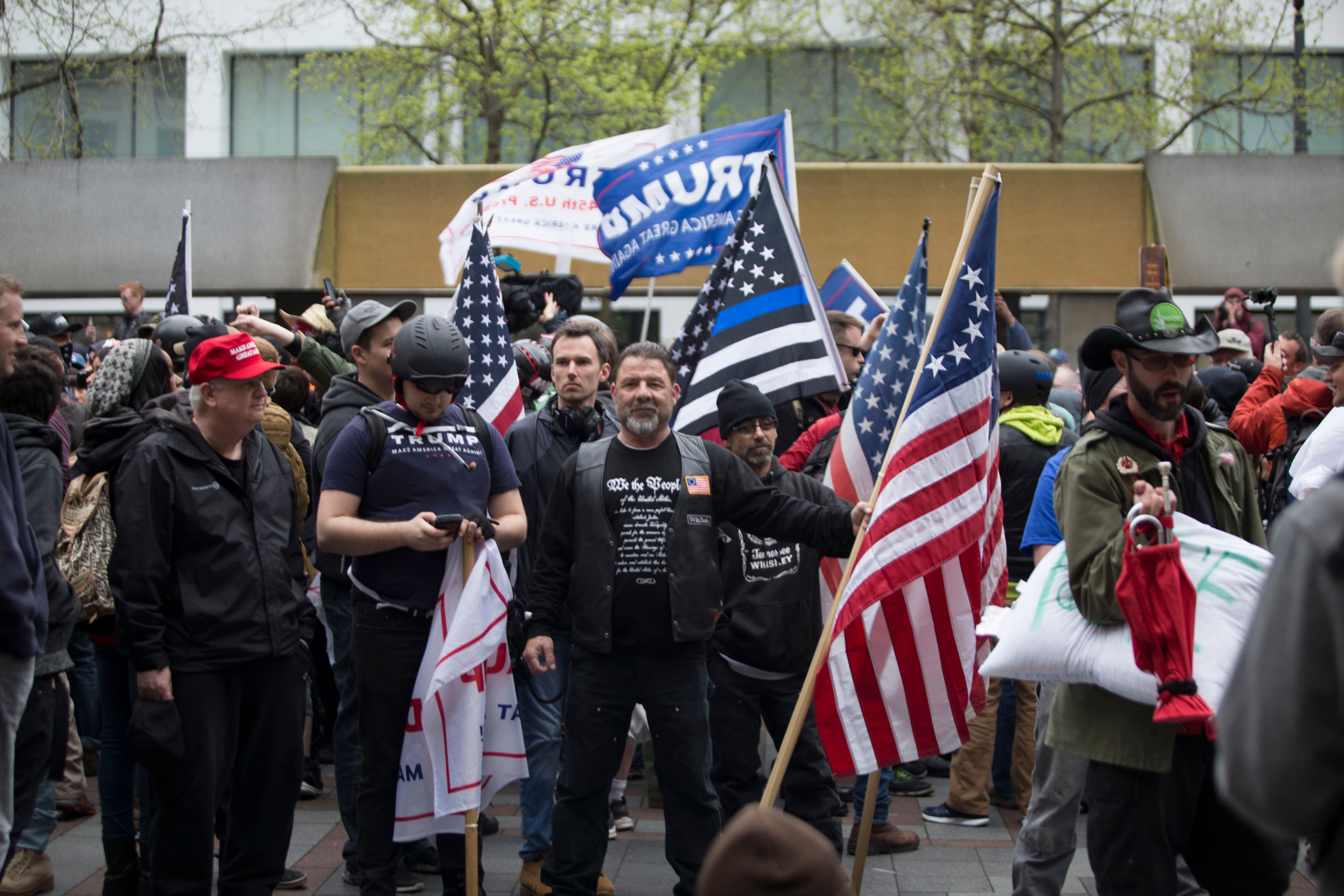By Dr. Jennifer Mercieca
“Do you remember when you were growing up,” tweeted former UN Ambassador and South Carolina Governor Nikki Haley during the Faith & Freedom Coalition’s Road to Majority conference in June: “Do you remember how simple life was, how easy it felt? It was about faith, family, and country. We can have that again, but to do that, we must vote Joe Biden out.”
Haley would like to be the 2024 Republican Party nominee for president. Like others running for the Republican nomination, she apparently believes that the road to power is paved with fascist appeals to nostalgia. Reminding folks about the “good old days” of their childhood and blaming Biden for taking away their feelings of safety and comfort is a clever rhetorical trick based on nostalgia—why does it work?
Nostalgia is not always fascist, but it is always a powerful strategy.
Nostalgia is used in advertisements for products like Coca-Cola to get us to buy stuff. Nostalgia is used on social media to harvest our attention. Nostalgia is why there are so many blockbuster movie remakes and sequels.
Do you click on links like “50 Things Only '80s Kids Can Understand” or “90s Stars, Then and Now”? You’re not alone. The same mechanism that makes nostalgia a powerful clickbait strategy also makes it a powerful propaganda strategy.
The word “nostalgia” comes from the Greek (nostos ‘return home’ + algos ‘pain’) and literally translates to a kind of homesickness. Though the concept can be found in Homer’s Odyssey, the word itself came from Johannes Hofer’s 1688 Swiss medical dissertation, which labeled it as a disease that could be cured with opium, leeches, or (better) a vacation to the Swiss Alps.
Nostalgia was still considered a medical condition into the twentieth century when it was thought to be a psychiatric disorder characterized by “anxiety, sadness, and insomnia.” More recent research has described nostalgia as a frequently experienced sentimental longing for the past.
Academic studies divide nostalgia into two types: personal nostalgia (a person’s memories of their past) and historical nostalgia (communal memories about the past)—both can be potent sources for manipulation.
Research has found that people tend to feel nostalgia when they’re sad or lonely. Under such circumstances, nostalgic memories are thought to be “palliative,” meaning that when folks feel sad or lonely, thinking of the past can make them feel better. Nostalgia is also thought to strengthen social bonds and make people feel more communal. One study found that people experiencing nostalgia “felt more loved and protected, had reduced attachment anxiety and avoidance, and reported greater interpersonal competence” than people who weren’t experiencing nostalgia.
And so marketers, social media workers, and movie studios have found that nostalgia sells. It gets our attention, it makes us sentimental about the past, and it makes us want to spend our time and money thinking about or reliving those sentimental memories because doing so makes us feel good.
Nostalgia can be a powerful propaganda strategy when it is used to take advantage of people’s sadness or loneliness, harnessing those negative emotions to shape people’s memories of the past and the present. In other words, the same way that a “utopia” is an imagination of a future that doesn’t exist (quite literally, utopia translates to “not a place”), nostalgia can be used as a propaganda strategy when it invokes a sentimental imagining of a past that never existed.
It turns out that both our personal and communal memories of the past are easily shaped by others. One study (that’s been replicated several times) showed subjects photos of an exciting activity like a hot air balloon ride that had been photoshopped to include childhood images of themselves and asked the subjects to tell the researcher what they remembered from that day. More than fifty percent of folks said that they remembered the event from the photo, even though it never actually happened. They even made up elaborate “memories” and told the researchers stories about their experiences on that day (again, a day that never actually happened).
When a propagandist like Nikki Haley deploys nostalgia, they’re preying on people’s childlike memories of the past (a past that never existed) and telling folks that their “home” has been taken from them—and attributing blame for their feelings of sadness or loneliness to a particular person or group. They offer the comfort of community to relieve people of their sadness and loneliness—creating or reinforcing a polarizing us versus them mentality.
All of our brains are vulnerable to this specific propaganda strategy because we are primed to think that things are worse now than they’ve been before (even though things are actually better), and so we’re eager to be sentimental about the past. We also have what researchers call a “negative news bias” that makes us vulnerable to negative information—we pay more attention to it and think it’s more important than positive information.
For example—have you heard that the “United States may be experiencing one of the largest annual percent changes in murder ever recorded”—and that murder is down about 12% this year--according to statistics compiled from 90 US cities and published last month in the Atlantic. Probably not. In fact, if you’re a Republican, you’ve probably heard that crime is scary and out of control. That’s how propagandists take advantage of our negative news bias to shape our understanding of the world and drive us toward accepting fascist policies—if the world is a scary place, then we should give our power to a strong leader who can save us.
Hearing those scary news reports might make you long for your childhood when you felt safer, and life was simpler. Thinking about those days would give you a little serotonin boost and make you feel happy and communal feelings toward the person who elicited that nostalgia in you—whether it was Nikki Haley or Donald Trump, or Ron DeSantis. That’s the point (and power) of deploying nostalgia as a fascist propaganda strategy.
Your memories about the past are incomplete, easily shaped by others, and a vulnerability to propaganda. Fascists know that.
Fascists often pair appeals to nostalgia with humiliation to motivate their followers. Fascists know that if they can convince people that what they once had was good, but now it’s gone and that it was taken away from them by their enemies (who cheat) that they can use those feelings of loss and longing and humiliation to gain power. It’s a rhetorical trick, and it works.
publishedDate7 July 2023 at 10:08
-04:00



